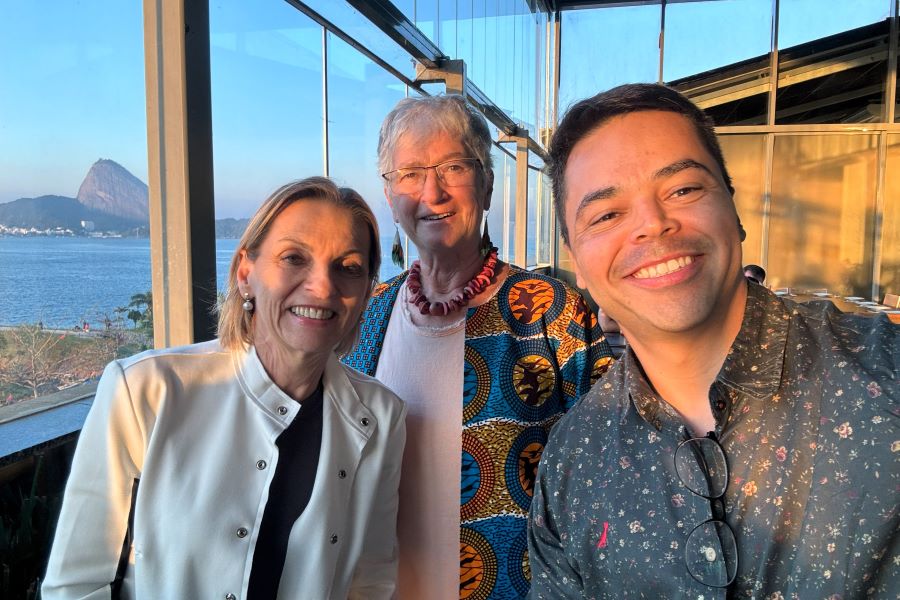Rio - Cape Town - Frankfurt (Oder). Anderson Lucas Macedo receives award for sociolinguistic doctoral thesis
The Brazilian linguist Anderson Lucas Macedo has written an award-winning dissertation on language variation in Cape Town, South Africa, at the Viadrina and his home university, the Universidade Federal Fluminense (UFF) in Rio de Janeiro. For his work, which was supervised at the Viadrina by Prof Dr Konstanze Jungbluth, he has now received the prize for the best dissertation of 2024 from his university. He will be a guest at the Viadrina again at the end of January.
"We congratulate Anderson Lucas Macedo on his outstanding research achievement. We are delighted that we were able to participate in this special constellation, Brazil - South Africa," says Konstanze Jungbluth. She supervised the work together with her Brazilian colleague Prof Dr Mônica G. Savedra as part of a cooperation agreement between the Viadrina and the Universidade Federal Fluminense. This collaboration was financially supported by the German Academic Exchange Service (DAAD) and the Brazilian funding agency CAPES as part of the PROBRAL programme.

Lucas Macedo
Anderson Lucas Macedo with the supervisors of his doctoral thesis Prof. Dr Konstanze Jungbluth (centre) and Prof. Dr Mônica G. Savedra
In his academic work, Anderson Lucas Macedo is particularly interested in the interactions between linguistic identity, belonging and ethnicity. For his doctoral thesis, he conducted interviews with residents of Cape Town in order to better understand who uses which language for which reasons and how this language is valued. "In Cape Town, two different ethnic groups with very different social and political positions share the same language: Afrikaans," he says, describing the starting point of his research interest. In addition to the white population, Coloureds also speak Afrikaans, a group of South Africans with ancestors from various African, Asian and European countries. However, the groups use different variants of the language: the standard variety of the whites on the one hand and the so-called Kaaps on the other. The Coloureds have connected Afrikaans with South African languages such as Khoisan, Zulu or Xhosa and have thus created a linguistic identity for themselves.
What Macedo learnt in his interviews, which he initially conducted online due to the coronavirus pandemic and later on site: While standard Afrikaans is considered correct, legitimate and institutionalised but also the "language of the oppressors", Kaaps is generally regarded as inferior, informal and slang. The speakers themselves, however, use Kaaps confidently as a sign of their group identity. With his work and the presentation of his findings, Anderson Lucas Macedo aims to strengthen the visibility of the Coloureds - a group that he believes has been marginalised in important national discourses and decision-making processes and overlooked in social and political spheres since its early history in the 17th century. He believes that greater recognition of linguistic varieties and the identities associated with them could contribute to a fairer and more informed dialogue on issues of standardisation and linguistic identity.
Anderson Lucas Macedo will talk about his findings and conclusions on Wednesday 29 January at 9.15 am in room 204 in the Audimax building. Guests are welcome to attend this event as part of a seminar on language contact by Dr Rita Vallentin.
Translated by Deepl and edited
Back to the news portal
Share article: